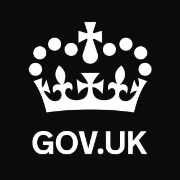Cowper’s Cut 296: NHS England goes full Hitchhiker’s Guide To The Galaxy

Readers of a certain age will recall Douglas Adams’ comedy classic ‘The Hitchhiker’s Guide To The Galaxy’. On the cover of said guide (the first e-book?) was inscribed the phrase ‘Don’t panic!’
Charmingly, the Department For Health But Social Care’s wholly-owned subsidiary NHS England have adopted this as their mantra.

Health Service Journal’s Hayley Kirton reports that NHSE have issued guidance to line managers that when ‘managing exits’, managers are told they are expected to:
- “Support your colleague by showing kindness to them, respect their decision, and wish them well for the future;
- “Lead by example and remain calm, i.e. do not panic when key colleague leaves”.
We are so far beyond self-satire here, that I am actually starting to warm to NHS England. This is a truly special kind of stupidity.
Remarkably, that isn’t the stupidest NHS England communication to appear this week
I wrote in last week’s ‘Cut’ about NHS England’s attempt to get an extra billion pounds out of Chancellor Jeremy Hunt, on the basis of the cost of the strikes.
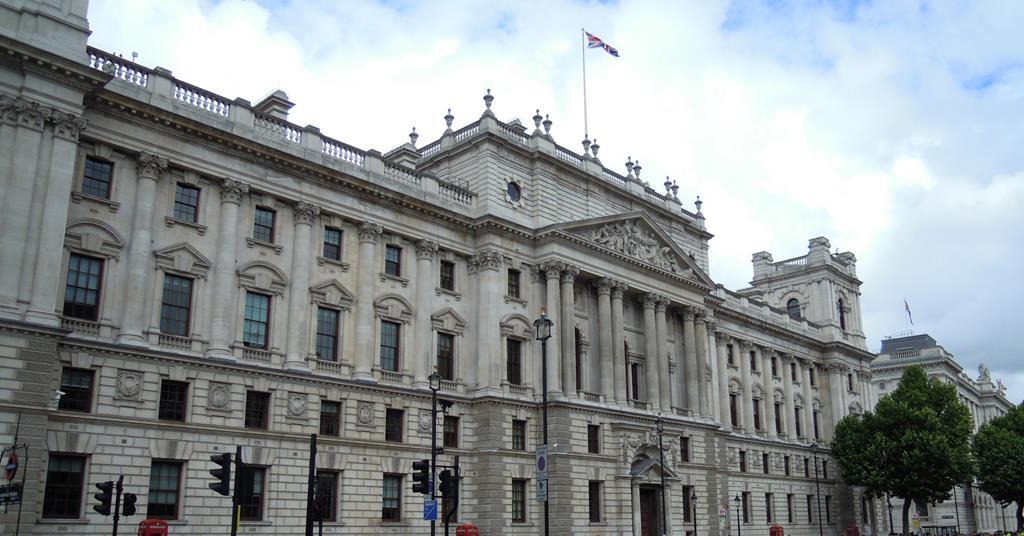
It failed, as Henry Anderson’s Health Service Journal reporting flagged.
This refusal would, of course, never have happened if Matt Hancock were still Health But Social Care Secretary: Alan would simply have challenged Jeremy Hunt to a dance-off.
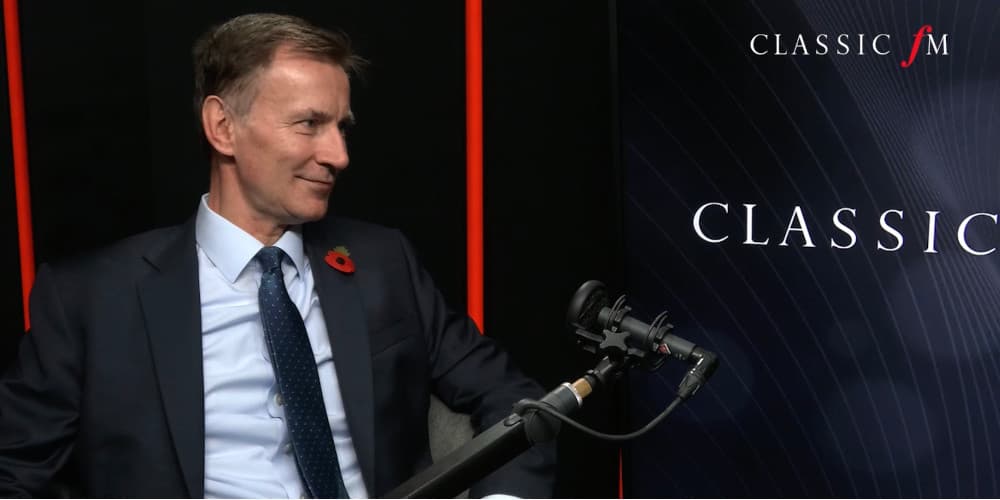
Mind you, Jeremy Hunt is reputed to be a nifty mover, so Alan would probably have come off as runner-up in Strictly Come Former Health Secretary, too.
Henry writes that “local NHS bodies will receive an additional £800 million as part of a package to offset the costs of strike action so far this year … however, the vast majority of this will have to come from within existing Department of Health and Social Care and NHSE budgets, after the Treasury refused to fund more.
“Around £200 million of the £800 million is from HMT, and was already announced by the Prime Minister — purportedly for “winter” — in September. It is thought a further £100 million is expected to be new money from HMT. But the remaining circa £500 million will be found from existing DHSC and NHSE budgets, after the Treasury provided far less than the £1 billion NHSE had pressed for.”
Capital and tech budgets are, as Henry notes, taking a big chunk of the hit. You’d almost think that they’d cancel some of the 40 New (If Fictional) Hospitals.

Henry’s follow-up story revealed that “local leaders will be permitted to cut spending on the development of cancer, prevention, learning disabilities and autism services, as they bid to deliver their financial plans this year”.
Oh good.

One result was this long read/letter from NHS England.
It is a remarkable piece of intellectual dishonesty. NHSE bids, “we are writing to provide clarity on the funding and actions the NHS has been asked to take to manage the financial and performance pressures created by industrial action”.
NHS England? Writing to provide clarity?
There’s a first time for everything. Let’s move on.
“The financial and performance pressures created by industrial action”, eh?
Mmmmmmmm.
If not mmmmmmmmmmmmmmmmmmm.
NHSE ramble on, “as a result of these pressures, for the remainder of the financial year our agreed priorities are to achieve financial balance, protect patient safety and prioritise emergency performance and capacity, while protecting urgent care, high priority elective and cancer care”.
In other words, kiss your waiting list reduction pledge goodbye, Prime Minister.
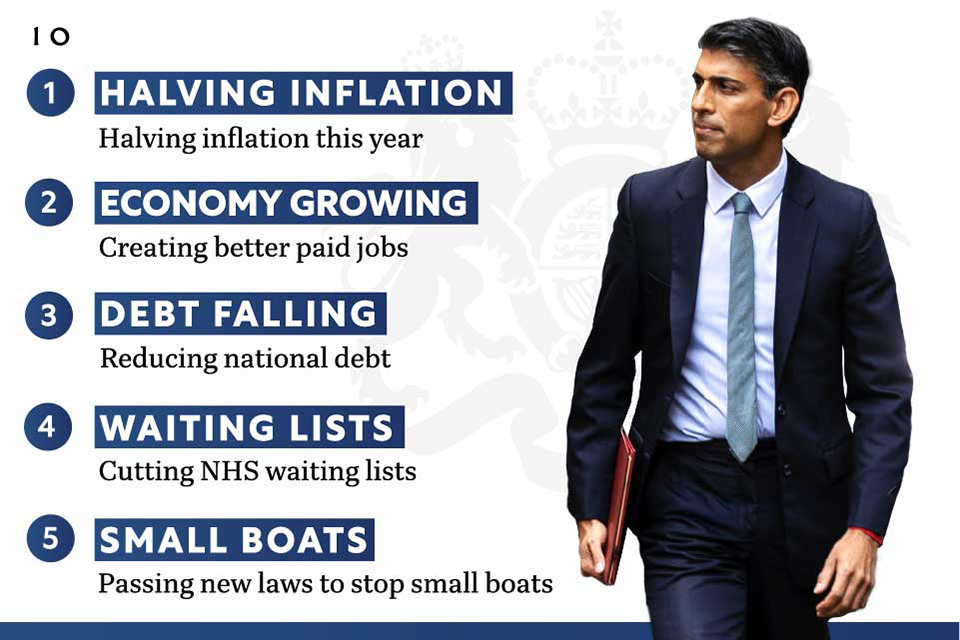
“In response, we are asking systems to complete a rapid two-week exercise to agree actions required to deliver the priorities for the remainder of the financial year”.
OK. Let’s go through this using our brains, rather than what NHS England asserts.
The Health Foundation is a pretty widely respected organisation.

So let’s have a look at Tallack and colleagues’ recent analysis on the waiting list:
“Industrial action: since November 2022, an unprecedented series of strikes have been held across the NHS. Hospital doctors, nurses, paramedics, radiographers and other staff groups have held industrial action on 52 days up until October 2023, resulting in more than 1.1 million procedures and outpatient appointments being postponed.
“… since the start of industrial action by hospital doctors in March and up to and including strikes in October, we estimate that around 213,000 fewer pathways have been completed.”
This is, of course, not the end of the matter.
If we read down to the end, we find the following: “the waiting list has almost tripled over the past decade. It grew steadily between 2013 and 2019, grew sharply during the pandemic and has since continued to increase rapidly. The growing backlog of elective care cannot be attributed to the COVID-19 pandemic alone.”
Nor indeed to strikes, which is not what NHSE are pretending.
Tallack and colleagues continue, “its roots lie in a decade of underinvestment in the NHS and other public services, an avoidable failure to address chronic staff shortages, lack of capital investment and the longstanding neglect of adult social care.
Goodness. So the billion-pound deficit is not about the strikes, then?
NHS England, a wholly-owned subsidiary of the Department For Health But Social Care since the 2022 Act became law, will be disappointed and surprised.
As for their ambition to “achieve financial balance, protect patient safety and prioritise emergency performance and capacity, while protecting urgent care, high priority elective and cancer care”, here one must have a heart of stone not to laugh at NHSE’s idiocy.
It is almost as if they do not know how much of the NHS is utterly fucked.
They do in fact know how much of the NHS is utterly fucked, but they have decided for their own career-preserving reasons to keep in with Secretary Of State For Looking Baffled Steve ‘The Banker’ Barclay by pretending that his political ‘lines to take’ are not utter nonsense.
(Clearly, The Banker’s political ‘lines to take’ are utter nonsense.)
All members of the NHS Reality-Based Community have known this since Mr Barclay chose an industrial dispute over medics’ pay during the period covered by PM Rishi ‘The Brand’ Sunak pledge to reduce waiting lists.
You can have a fight with your key workforce, or you can reduce NHS waiting lists.
You cannot do both.
This is not complicated.
It’s worth noting that over the past couple of years, the usual growth of the English NHS RTT waiting list has been 100,000 a month. Figures were obviously somewhat skewed by the pandemic; but in January 2020, pre-Covid19, the backlog was 4.4 million. The latest English NHS RTT data this week, for September 2023 (see below), is 44 months later; so at an average 100,000 increase PCM, that’d put the waiting list at 8.8 million.
The latest data wasn’t that high: it was 7.8 million. But then, a lot of people died during Covid who would’ve been on those waiting lists.
This isn’t complex. Nick Timmins used to explain it brilliantly in the FT, and Dr Rob Findlay of Insource does still in HSJ.
If your demand is much greater than your capacity, backlogs grow. You have to increase your permanent capacity to cut backlogs.
And the Department For Health But Social Care and its wholly-owned subsidiary NHS England chose not to have any credible plan to achieve their ‘target’ of hitting 130% of pre-Covid activity.
So the backlog keeps growing …
September Gurls
The latest, September 2023, RTT data was published, alongside the other new data sets. The backlog is now 7.8 million.
Of note was that the rise was much smaller than the usual 100,000: just 26,000 or so. For the first time, we got a figure of the number of individuals on the RTT list: estimated to be about 6.5 million.
Waiting times are starting to waver. In 391,122 cases the patient was waiting more than 52 weeks; in 109,138 cases they were waiting more than 65 weeks (these will allegedly be abolished by March 2024); in 10,201 cases they were waiting more than 78 weeks (eighteen-month waits were allegedly abolished in April 2023); and in 227 cases they were waiting more than 104 weeks (two-year waits were allegedly abolished in July 2022). All abolition data from the comically-unmissable NHS England Electoral Recovery Plan.
Only of course none of these targets will now be met. Because of strikes, if you’re NHSE/DHBSC; or because of a longstanding and wide variety of reasons, chief among which being the absence of a credible recovery/expansion plan if you’re a member of the Reality-Based Comunity.
In 57.6% of cases the patient had been waiting up to 18 weeks, thus not meeting the 92% standard.
The A&E news was no better: twelve-hour A&E waits rose by a third in the month in question. The number of patients on trolleys for half a day or more after a decision to admit them to hospital reached 44,655 in October 2023: a rise of 35 per cent in a month.
A rise of this kind has not been seen since the peak of last winter.
Payday for the BMA?

On Monday, The Times suggested that the moves around a pay deal between the Government and the BMA are advancing, wealth the prospect of a concealed (i.e. non-pensionable) pay rise via one-off bonuses or Clinical Excellence Award rate rises.
Chris Smyth and Kat Lay report that “Ministers have put more money on the table in talks with consultants, in a shift of position that has led to growing optimism that a deal can be reached”.
Reportedly, “payments to increase unsocial hours or linked to productivity improvements” may also be on offer.
3️⃣ Today’s offer is final.
— Rishi Sunak (@RishiSunak) July 13, 2023
There will be no more talks on pay.
This country will not be bullied into higher taxes or higher borrowing to fund unrealistic pay demands, risking higher inflation.
I’m old enough to remember PM Rishi ‘The Brand‘ Sunak’s line that “there will be no further talks on pay”.
There will be more talks on pay. https://t.co/ji7jI1c6Bi
— Andy Cowper (@HPIAndyCowper) July 13, 2023
I even correctly predicted that “there will be more talks on pay”.
And here we are: there are indeed more talks on pay!
I’m so CLEVER!
(I’m not, really. But it was quite obvious, wasn’t it?)
I was invited on Times Radio, to chat about what this all means.
“Any money that's put into bonuses...isn't pensionable, so it won't contribute to remuneration in the long term. That also makes it cheaper for the government.”
— Times Radio (@TimesRadio) November 7, 2023
There's "some progress” in negotiations between the government and BMA but "issues" have arisen, says @HPIAndyCowper. pic.twitter.com/U5g4mlfd42
Workforce woe
In ‘Beyond government accountability: the role of medical schools in addressing the NHS workforce crisis’, Thomas Ferreira writes, "over one-third of medical students intend to abandon the NHS within 2 years of graduating, either to practise abroad or to leave the profession entirely.
“Factors steering these decisions include dissatisfaction with remuneration, poor working conditions of a doctor in the NHS and an undesirable work–life balance.
“Similarly, reasons for medical students’ leaving the NHS are consistent with previous studies carried out on doctors. Furthermore, the study reported that only 17% of medical students are satisfied with the overall prospect of working in the NHS”.
“The recent NHS Long Term Workforce Plan, proposing to double the number of medical school places, raises several questions.
“First, there is a concern over the availability of trainers for the increasing number of students, given the current – and growing – scarcity of medical professionals. Moreover, educational infrastructure is already strained with limited spaces for students in wards, theatres and clinics, potentially diluting the quality of education further.
“The anticipated expansion is likely to exacerbate existing bottlenecks at various stages, from the Foundation Programme to specialty posts, to consultant posts, making it critical to reassess the viability of this expansion without addressing underlying issues.
“Failure to do so may intensify the workforce crisis, potentially leading to a surge of doctors who, unable to further specialise, feel disillusioned and opt to leave, further straining resources”.
Thi9s paper is particularly welcome because it argues clearly against the currently prevalent ‘suck it up’ approach to the deliberate enshittificatoon of trainees’ lives: “medical schools must foster a dialogue extending beyond urging future doctors to develop resilience as a means to endure a flawed system. There is a need to shift the narrative from merely building resilience to poor working conditions to fostering an environment wherein doctors can thrive, both professionally and personally.” Amen.
PPE Medpro: Mone denial blown

It appears that Baroness Mone holds to her cited dictum “don’t believe everything you think”.
— Lady (Michelle) Mone OBE (@MichelleMone) November 24, 2022
It also appears that her previous denials of being involved in PPE Medpro were untruths. The Guardian’s David Conn writes, “Conservative peer Michelle Mone has acknowledged for the first time that she was involved with a company that was awarded government PPE contracts worth £200 million during the Covid pandemic.
“Lady Mone’s husband, Douglas Barrowman, has also acknowledged for the first time that he was involved in the company, PPE Medpro.”
“A representative of Barrowman told the Guardian that the Isle of Man-based businessman was an investor in PPE Medpro, and chaired and led the operation to supply personal protective equipment.
“The admissions raise questions about years of denials from the couple. Until now, Mone and Barrowman have consistently and emphatically denied to the Guardian, via lawyers, that they were involved in the company”.
The Department For Health But Social Care is suing PPE Medpro for the £122 million that it paid for the surgical gowns but never used, claiming they were unsafe. PPE Medpro is defending this claim. The National Crime Agency is conducting an investigation into PPE Medpro, which is continuing.
The Alan comeuppance

Greater self-love hath no man than to get his retaliation in first, as The People’s Partridge proved, briefing The Times that he’s being made a scapegoat by Number 10.
Well.
It’s almost as if Alan were an avid reader of ‘Cowper’s Cut’.
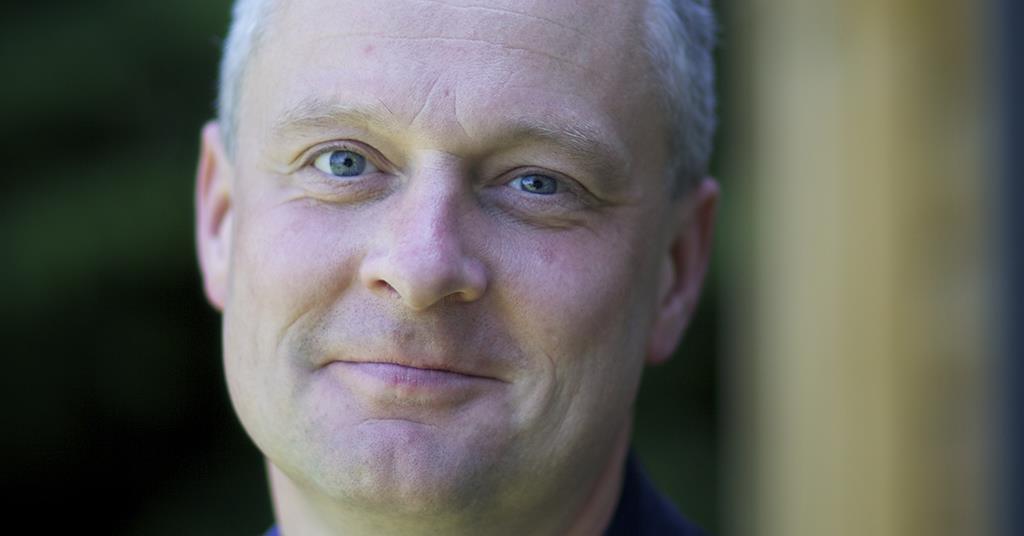
Longstanding readers will recall that way back in the HSJ era of ‘Cut’, I referred to Alan as the Johnson administration’s Colt Seevers figure - ‘The Fall Guy’.

Alan didn’t win SAS: Who Cares Who Wins. What a shame.

The Times’ Matt Chorley has this decent mea culpa on Alan.
Strikes
Imbecile, GBeebies presenter and Conservative And Unionist Party vice-chairman ‘30p’ Lee Anderson MP managed to get himself into a spot of legal trouble by defaming striking doctor Tom Dolphin on Kiss (the social media microblogging platform formerly known as Twitter).
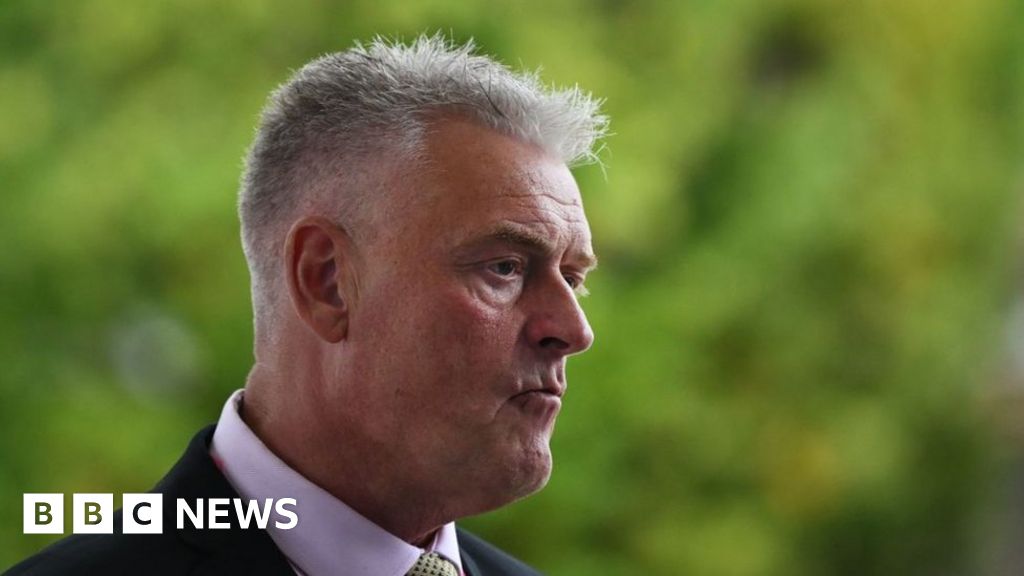
Dolphin is clearly a reasonable sort: he let Anderson off with a public apology and a large donation to the BMA strike fund, as BBC News reports.
Recommended and required reading
Chief Medical Officer Professor Sir Chris Whitty’s latest annual report on the nation’s health is top of this week’s list.
You’ll be astonished to hear that HSJ have been told that the 40 New (If Fictional) Hospitals Programme is not actually fully funded. What do you mean, you’re not astonished at all?
The Guardian has been following safety failures by home medicines private provider Sciensus that resulted in a cancer patient’s death. Its latest story shows that “three patients were hospitalised and a fourth died when they were given the wrong doses of a powerful chemotherapy drug after a catastrophic IT failure at the medicine manufacturing unit of Sciensus in April this year … six months after the IT blunder, Sciensus has not fixed the problems identified by the regulator … as a result, the suspension of its licence – originally due to be lifted last month – has been extended until July next year”.
An unpleasant, necessary read by The Times’ Edward Lucas on the health and care system letting down a dying friend.
An Observer report indicates that UK Biobank changed its terms and conditions regarding access to donated data.
Financial Times long read on the role that algorithms are playing in liver transplant candidates, and the unintended consequences.



